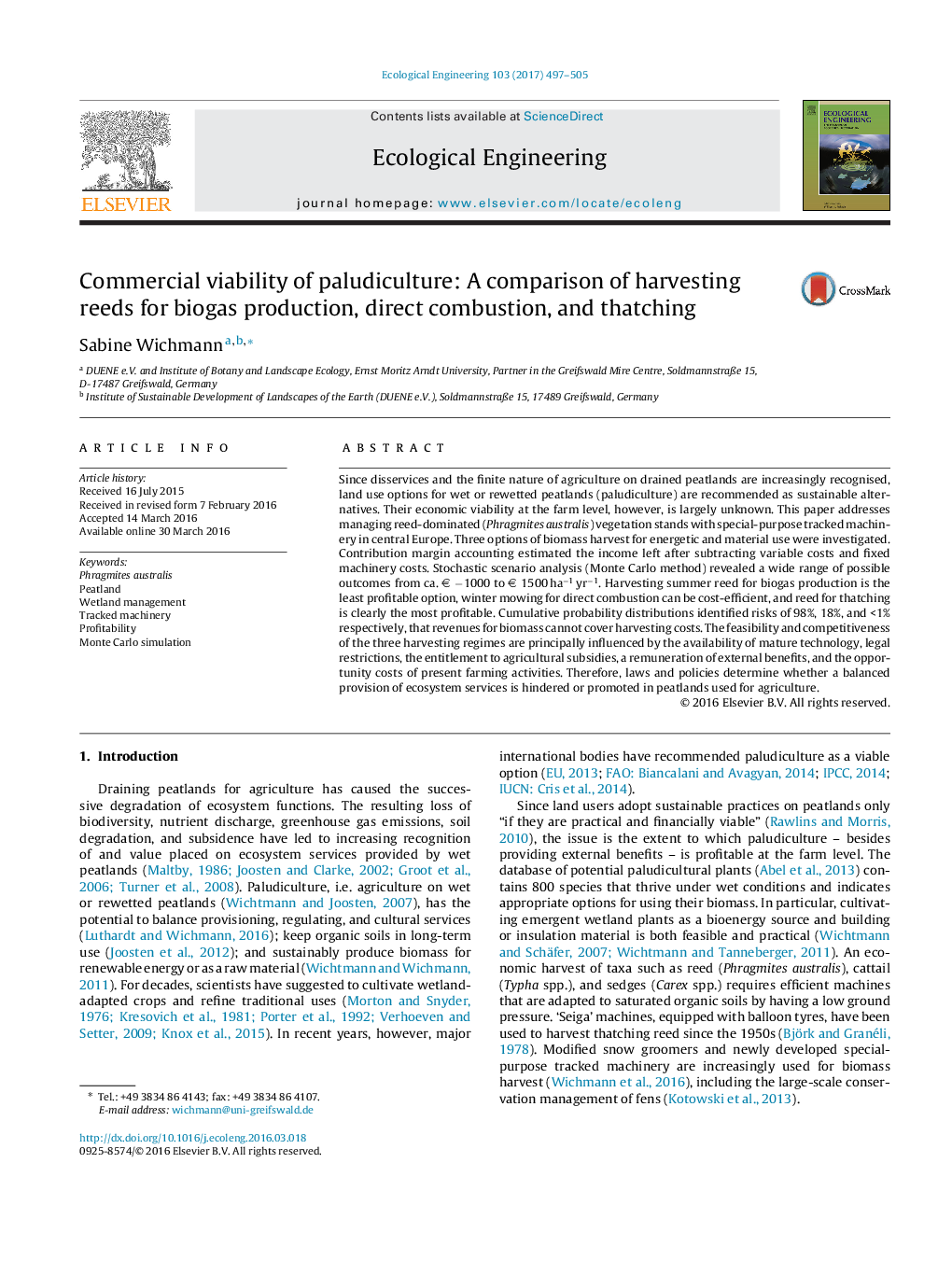| کد مقاله | کد نشریه | سال انتشار | مقاله انگلیسی | نسخه تمام متن |
|---|---|---|---|---|
| 5743904 | 1412323 | 2017 | 9 صفحه PDF | دانلود رایگان |
- Costs of harvesting peatlands with special-purpose tracked machinery were determined.
- Monte Carlo simulations allow economic assessment despite highly variable data.
- Harvesting reeds for thatching is more profitable than for combustion or biogas.
- Paludiculture to balance ecosystem services may require financial incentives.
Since disservices and the finite nature of agriculture on drained peatlands are increasingly recognised, land use options for wet or rewetted peatlands (paludiculture) are recommended as sustainable alternatives. Their economic viability at the farm level, however, is largely unknown. This paper addresses managing reed-dominated (Phragmites australis) vegetation stands with special-purpose tracked machinery in central Europe. Three options of biomass harvest for energetic and material use were investigated. Contribution margin accounting estimated the income left after subtracting variable costs and fixed machinery costs. Stochastic scenario analysis (Monte Carlo method) revealed a wide range of possible outcomes from ca. ⬠â1000 to ⬠1500 haâ1 yrâ1. Harvesting summer reed for biogas production is the least profitable option, winter mowing for direct combustion can be cost-efficient, and reed for thatching is clearly the most profitable. Cumulative probability distributions identified risks of 98%, 18%, and <1% respectively, that revenues for biomass cannot cover harvesting costs. The feasibility and competitiveness of the three harvesting regimes are principally influenced by the availability of mature technology, legal restrictions, the entitlement to agricultural subsidies, a remuneration of external benefits, and the opportunity costs of present farming activities. Therefore, laws and policies determine whether a balanced provision of ecosystem services is hindered or promoted in peatlands used for agriculture.
Journal: Ecological Engineering - Volume 103, Part B, June 2017, Pages 497-505
